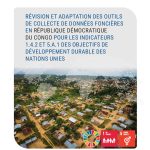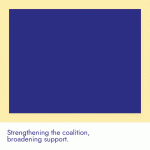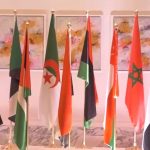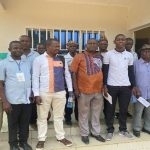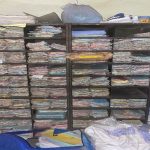- Version
- Download 4570
- File Size 2.34 MB
- Create Date February 22, 2018
- Download
 Pathways to increase access to land for the realization of development, peace and human rights
Pathways to increase access to land for the realization of development, peace and human rights
This publication provides practical and evidence-based guidance on how to improve women’s access to land as an essential element to achieve social and economic development and enjoyment of human rights, peace and stability in the specific context of the Muslim world. The challenges faced by women living in Muslim contexts do not substantially differ from those faced by women in other parts of the world: socially prescribed gender roles, unequal power dynamics, discriminatory family practices, unequal access to justice are the most common. However, 20 per cent of the world’s population is Muslim and certain land-related patterns reflecting customary and religious practices emerge as common elements that create context-specific opportunities to meet these challenges.
This publication investigates these common elements, reviews international frameworks and national laws, and analyses a wide range of country experiences. Different tenure options are compared and special attention is given to the protection of women’s land rights through inheritance and at the time of marriage, when the land and property regime of the family is redefined. Legal and administrative reforms, access to justice, credit and microfinance are presented as important conditions for change. Particular emphasis is put on the protection of displaced women’s land and housing rights.
Principal authors:Ombretta Tempra, Siraj Sait, and Rafic Khouri
Main contributors: Doaa El Sherif, Dalal al Naggar, Dina Naguib, Jean du Plessis, Zouka Karzon
Other contributors: Ainul Jaria Maidin, Amaal Hassan Abu Ghoush, Angela Mwai, Atta El-Sonbaty, Cherihane Gerges, Clarissa Augustinus, David Thomas, Ehab Okba, Elisabetta Cangelosi, Everlyne Nairesiae, Faten Tibi, Fatma Abdel-Kader, Francisco Carranza, Heba Essam E. Khalil, Jo Berg, Jolyne Sanjack, Joseph Schechla, Katia Araujo, Leila Houayek, Marwa Akeel, May Jarrar, Mohamed Ibrahim, Mohga Embaby, Naela Haddad, Rebecca Ochong, Rowshan Jahan Moni, Ruth Cook, Sarkis Fadous, Seema Ahmed Al-Langawi, Soha Farouk, Tala Kammourieh, Tarek Alkhoury, Venge Nyirongo, Zeynep Sila Sonmez.
Editorial team: Judith Mulinge and Victoria Quinlan
Sponsors: The Netherlands Government, the Swedish International Development Cooperation(SIDA) , the Norwegian Government.

